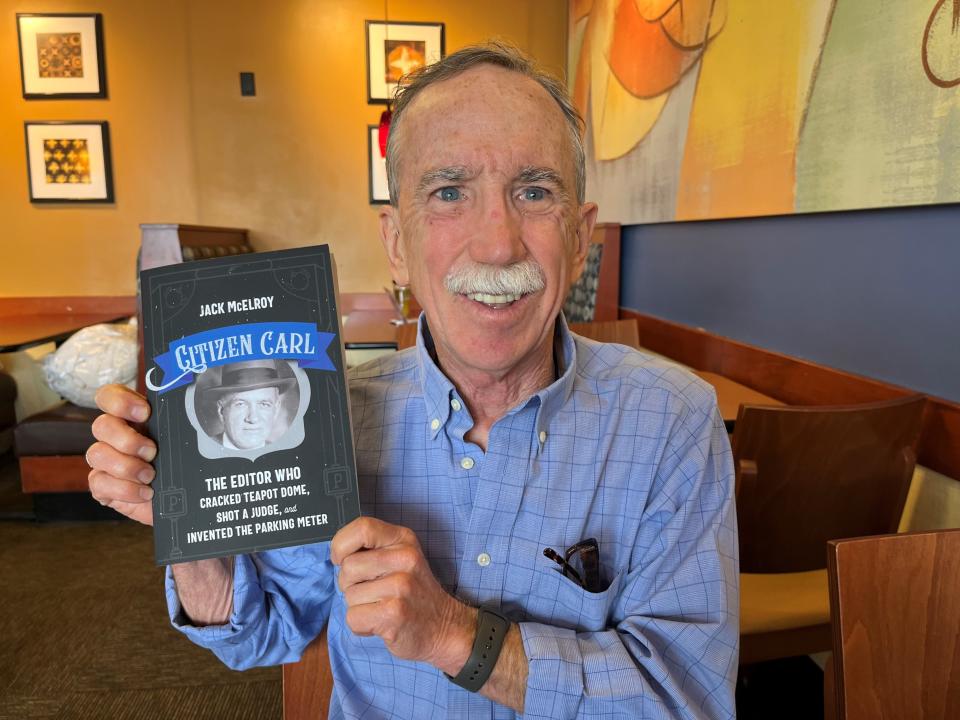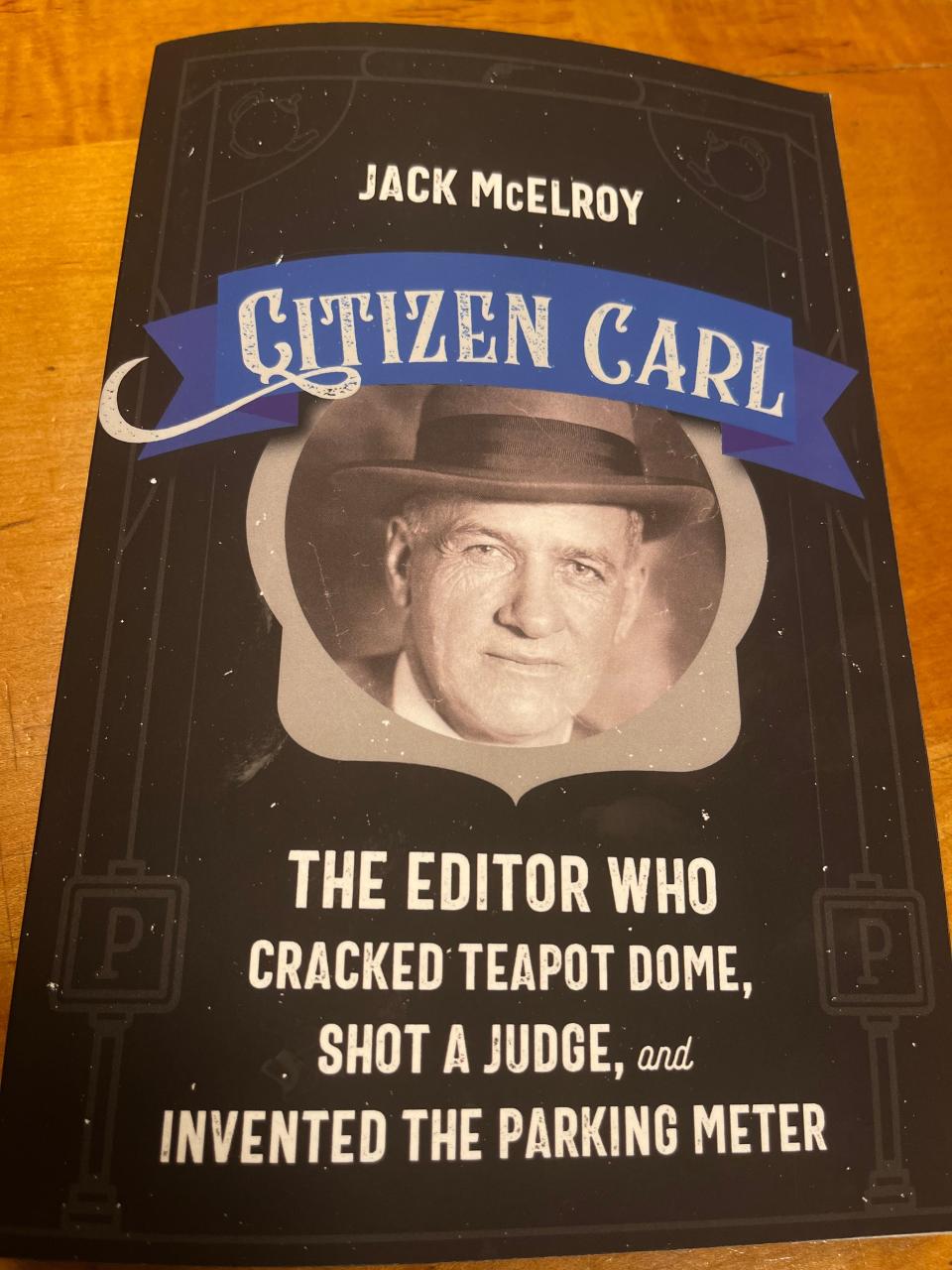Former News Sentinel editor's new book captures legendary life of Teapot Dome journalist
- Oops!Something went wrong.Please try again later.
Carl Magee was a once-famous newspaper editor and publisher who often found himself making the news as much as reporting it in places like New Mexico and Oklahoma in the early 20th century.
Despite his almost movie-like life that included such diverse contributions as uncovering the infamous Teapot Dome scandal under the Warren Harding administration and developing the first parking meter, he has not had a full biography written on him.
That has changed with the recent publication of the book “Citizen Carl: The Editor Who Cracked Teapot Dome, Shot a Judge, and Invented the Parking Meter,” by former News Sentinel editor Jack McElroy.
As McElroy recently discussed the book, he said he was long familiar with this man dating to when he began working at Magee’s former Albuquerque Tribune in 1977 after having grown up in Arizona. Magee had been dead for three decades and had later lived elsewhere, but his legend persisted.
“Right from the start I started to hear stories,” he said, adding that Magee also developed the newspaper motto “Give Light and the People Will Find Their Way,” that was adopted by the Scripps-Howard chain and displayed along with a lighthouse logo.

“I was curious how his story fit together, so after I retired, I still wanted to do some things. No one had written a book about him, so I said, ‘I bet if I do a book, I can get someone to publish it.’ ” The University of New Mexico Press agreed.
McElroy wrote in an academic style with footnotes, but it still reads almost like an adventure novel, with enough different stories to have filled a thick Sunday newspaper of old. Besides helping uncover that Secretary of Interior Albert Fall had accepted bribes from oil industry friends for issuing drill permits without any public bidding in such places as Teapot Dome in Wyoming, Magee also was involved in a shooting. He was later acquitted on manslaughter charges in the case in which a bitter and defeated judge had angrily attacked him.
And while heading up an Oklahoma City paper, he had helped come up with the development of the parking meter as a civic gesture to aid Oklahoma City businesses and combat parking congestion.
As he began to research the book, McElroy learned such additional facts as that Magee’s two sons died in airplane accidents years apart. He also was a pioneer in personal multimedia work by being on radio, and he sought funds for one of his struggling papers in a GoFundMe-like manner. The lawyer and former educator also wrote a daily newspaper column that was like a contemporary blog post.
“He crammed so many things in his life, he lived several lifetimes,” said McElroy, echoing what he said an Oklahoma City newspaper wrote of Magee at the time of his 1946 death.
Despite all the public good the multifaceted leader seemed to do, the ardent Methodist was certainly not perfect, McElroy added.
“He was ahead of his time but he in some instances supported segregation,” he said. “He felt like it was just necessary because of the way public attitudes were. He never went out on a limb and championed social justice. And he had a little bit of a messiah complex.”

With few Magee acquaintances or relatives still around, McElroy said much of the information from the book came from online searches and other research, with much of it done during the pandemic. But he still found plenty of rich information, he added, including Magee’s college newspaper archives from what is now the University of Northern Iowa and transcripts of the Teapot Dome hearing.
“The research was fascinating,” added McElroy, who was editor of the News Sentinel 2001-18.
McElroy, who is busy promoting the book with guest columns and articles in publications in communities where Magee lived, thinks this unique man’s story still has impact today regarding such issues as uncovering public corruption and pointing out demagoguery.
“He was a guy who today could even serve as a role model for young people who are considering getting into the business,” he said.
And for McElroy as a retired journalist, finally tying together the many pieces of his story was quite inspiring, too.
“It was wonderful to tell the story of a heroic journalist,” he said.
This article originally appeared on Knoxville News Sentinel: Former News Sentinel editor Jack McElroy writes bio of Carl Magee

